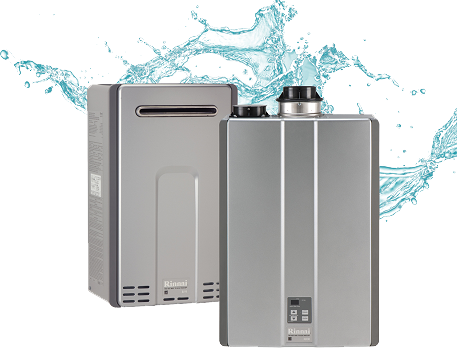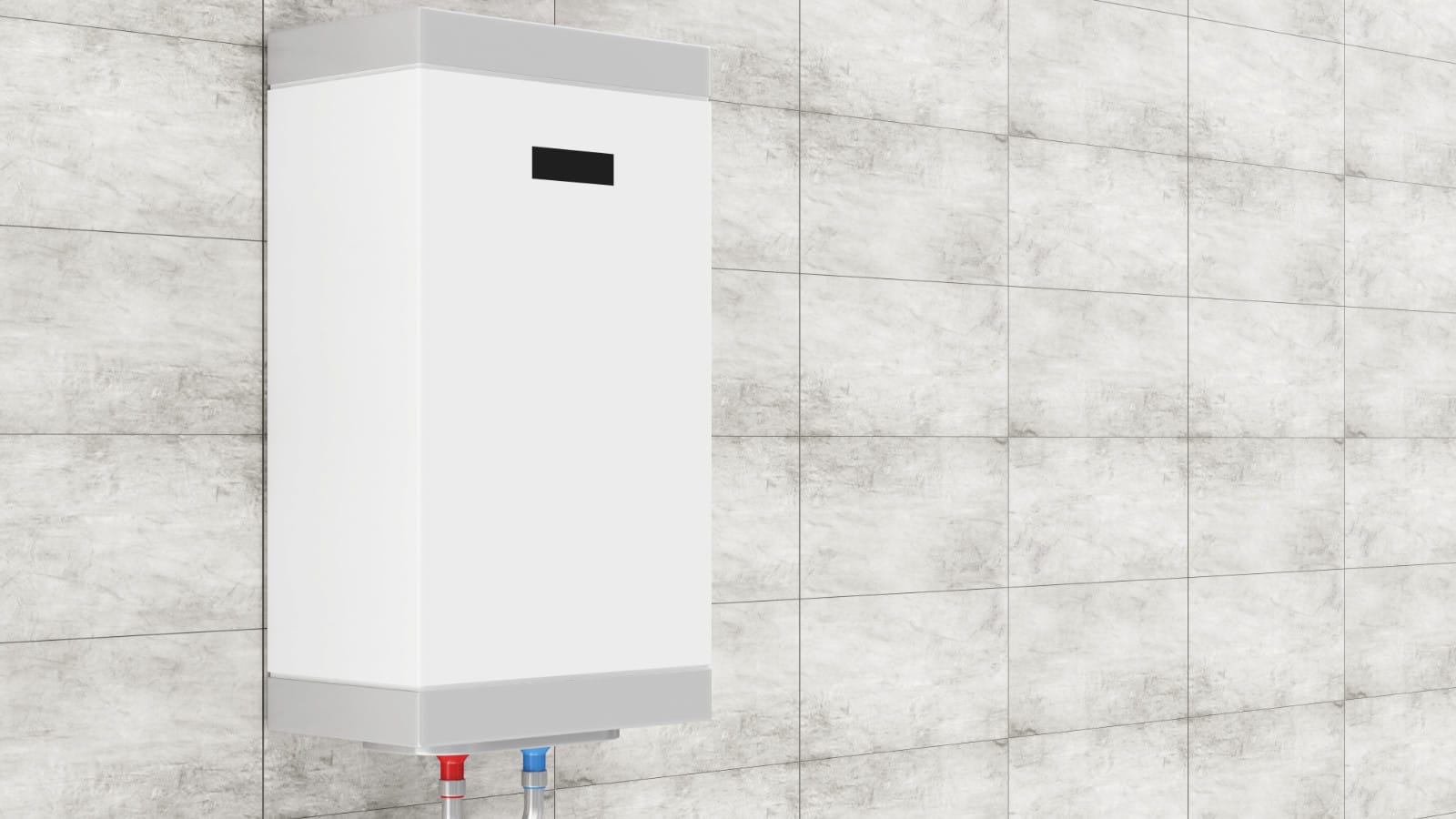The content below on the subject of 5 Benefits of Tankless Water Heaters is truly enlightening. Don't miss it.

In a world where ease and efficiency reign supreme, it's no surprise that house owners are frequently in search of smarter ways to manage their home's energy intake and comfort. One technology that has steadily acquired appeal is the tankless hot water heater. But exactly what makes these systems stand out from the traditional tank-based models the majority of us matured with? Let's dive in and check out the benefits of tankless hot water heater, aiding you determine if it's time to make the button in your house.
Introduction
Picture this: you step into the shower after a lengthy day, anticipating a comforting cascade of warm water, only to be greeted by icy droplets due to the fact that the last individual used it all up. Sound familiar? Traditional water heaters store a set amount of warm water, meaning you go to the grace of that tank's supply. Tankless systems, on the other hand, warmth water as needed. Say goodbye to going out mid-shower, no more wrestling with timetables simply to make certain hot water is offered.
Recognizing Tankless Water Heaters
What Are Tankless Hot Water Heater?
Tankless hot water heater, in some cases referred to as on-demand or instantaneous water heaters, offer warm water only as it's required. Rather than keeping gallons of pre-heated water, these devices kick into action the moment you activate the faucet. Water travels through a heat exchanger, heating up in real-time, suggesting you get a nonstop flow of warm water without the requirement for a big storage tank sitting idly by.
How Do They Differ from Standard Solutions?
Typical heating systems hold a reservoir of hot water, making use of energy to maintain that tank at a constant temperature level. Tankless units get rid of the standing supply, minimizing squandered energy and the large footprint of a huge cylinder. Basically, you're updating from a "stockpile" state of mind to a "made-to-order" approach.
Usual Types of Tankless Devices
Tankless water heaters usually come in 2 selections: gas and electrical. Gas designs tend to deliver higher flow prices, ideal for larger homes, while electrical models commonly serve smaller sized homes and are commonly less complicated to set up. Additionally, some systems are made for point-of-use (offering one fixture) while others can take care of the entire home's warm water demands.
Key Advantages of Tankless Water Heaters
1. Unlimited Hot Water Supply
Ever before needed to schedule showers so everybody gets their reasonable share of warm water? With tankless, that becomes a thing of the past. As long as the heating system's circulation capability isn't exceeded, you can take back-to-back showers without turning into a popsicle.
2. Power Performance and Expense Financial Savings
Say goodbye to heating up a titan storage tank's worth of water and maintaining it warm all day. Tankless heating units reduce standby power losses, which can lower energy costs. While the initial cost could be greater, the long-term savings commonly validate the financial investment.
3. Space-Saving Design
If your home is short on storage space, eliminating the cumbersome storage tank maximizes useful space. Tankless devices are portable and can commonly be installed on walls, stashed in corners, or mounted in tight energy wardrobes without having all to oneself the entire room.
4. Longer Life-span
A properly maintained tankless hot water heater can outlive its tank-based cousin. Traditional storage tanks may last 10-15 years, while tankless models can maintain downing along for twenty years or even more, making them a solid financial investment in time.
5. Improved Water High Quality
Storing water in a tank can in some cases lead to sediment accumulation or a slightly "off" taste. With tankless systems, fresh water is heated up on the spot, reducing the chances of debris build-up and possibly providing cleaner-tasting water.
Considerations Prior To Changing
Though the advantages are engaging, it's a good idea to consider a few elements prior to completely dedicating.
Initial Financial Investment Prices
Tankless heating units commonly come with a greater ahead of time cost. In between the unit itself and potential installment adjustments, the preliminary cost could give you sticker shock. Yet bear in mind to watch it as a lasting financial investment.
Setup Demands
Depending on your home's infrastructure, you may require additional electric capacity or gas line upgrades. Guarantee you recognize the setup needs and consult with a specialist to prevent surprises.
Examining Your Home's Water Usage Patterns
If your household all at once uses multiple components with high hot water need, see to it the device's circulation price fulfills your needs. Knowing your use patterns aids you select the ideal dimension and kind of tankless heater.
Upkeep and Treatment Tips
Tankless systems are reasonably low maintenance, yet they aren't set-it-and-forget-it home appliances.
Regular Cleaning and Descaling
Tough water minerals can accumulate in the heat exchanger, impacting effectiveness. Regular descaling (often advised annually) keeps the device running at peak performance.
Annual Expert Evaluations
A yearly checkup from a professional ensures small issues are caught early. They'll assess the system's efficiency, look for leaks, and help preserve optimal effectiveness.
Making Certain Proper Ventilation
For gas designs, correct air flow is necessary to safely eliminate exhaust gases. Make certain venting systems are clean and appropriately installed to avoid any prospective safety and security dangers.
Contrasting Different Brands and Versions
Not all tankless water heaters are developed equal.
Researching Trustworthy Suppliers
Seek trusted brands with a history of creating top quality devices. A reliable supplier usually supplies better consumer support and longer guarantees.
Reading Reviews and Customer Responses
Customer evaluations and comments from neighbors or close friends that have actually gone tankless can offer beneficial understandings. Sometimes, real-life experiences can be extra informing than marketing sales brochures.
Setup: Do It Yourself or Specialist?
While some homeowners delight in taking on projects themselves, tankless installment might not be the best time to burst out the toolbox.
Pros and Cons of DIY Installment
A do it yourself mount can conserve money, but it comes with threats. Incorrect installation can result in ineffectiveness or safety and security issues. If you're handy and have experience, it might be feasible-- yet wage caution.
When to Call a Professional Plumbing Professional
For the majority of, calling a professional makes sure whatever's done properly. A professional plumbing professional comprehends local codes, sizing needs, and venting criteria, decreasing the danger of problems.
Maximizing Performance
You've purchased a tankless device-- currently optimize its effectiveness.
Optimal Temperature Level Setups
Most individuals set their units between 120-140 F. Adjusting the temperature can enhance convenience and cost savings. Experiment to discover a wonderful spot that doesn't throw away energy.
Pairing with Low-Flow Fixtures
Intend to extend your system's capabilities? Consider installing low-flow showerheads and taps. They lower water use, allowing your tankless system to supply a consistent stream of warm water without straining.
Ecological Impact
Tankless hot water heater line up with greener living goals.
Decreased Carbon Footprint
By utilizing less power and just heating water as required, tankless systems can decrease your home's carbon impact, decreasing your ecological impact.
Conserving Natural Resources
Much less energy usage and much less wasted hot water convert right into fewer natural resources being made use of, an environmental win-win.
That Benefits Many from Tankless Heating units?
The elegance of tankless heating systems is that they can match a range of families.
Huge Family Members vs. Solitary Owners
Huge families might love the endless hot water supply, while solitary passengers value the power financial savings from not heating up a whole storage tank for just someone's morning shower.
Property Owners with Minimal Room
If your home is short on square footage, shedding the cumbersome tank liberates room for other essentials-- or possibly just much more elbow room.
Eco-Conscious Customers
Going tankless aligns with environmentally friendly worths, ensuring you're not losing energy or resources.
Future Patterns in Tankless Hot Water Heater
The world of home devices is ever-evolving, and tankless hot water heater are no exception.
Smart Home Assimilation
Visualize adjusting your water heater's temperature by means of an application or getting upkeep signals on your phone. As smart home tech developments, we'll see more connectivity and comfort.
Innovations in Innovation
R&D is continuously boosting heat exchangers, making devices extra efficient and sturdy. Future designs could be even quieter, a lot more portable, and better fit for differing environments.
Final thought
Picking a tankless hot water heater is greater than simply upgrading your home's warm water system; it's investing in lasting convenience, power performance, and a greener way of living. By considering your house's water use, bearing in mind installment needs, and devoting to routine upkeep, you can appreciate a constant stream of warm water without the baggage of a bulky container. As innovation advances, you can eagerly anticipate even smarter, extra efficient tankless remedies that not only make your life easier however additionally benefit the earth.
Why You Should Consider a Tankless Water Heater for Your Home
Energy Efficiency and Cost Savings
Tankless water heaters, also known as on-demand water heaters, heat water only when needed. This means they don't waste energy keeping a tank of water hot constantly. This efficiency translates into substantial cost savings on your monthly energy bills.
Endless Hot Water Supply
One of the significant advantages of tankless water heaters is their ability to provide a continuous supply of hot water. Traditional tank water heaters have a limited capacity and can run out of hot water, especially during peak usage times. In contrast, tankless water heaters can provide an endless stream of hot water, making them ideal for larger families or homes with high water usage.
Space-Saving Design
Tankless water heaters are compact and take up significantly less space compared to traditional tank heaters. They can be installed on walls, under cabinets, or even outside, freeing up valuable space in your home. This makes tankless water heaters a great option for smaller homes or properties with limited space for a traditional water heater.
Longer Lifespan and Lower Maintenance
Tankless water heaters typically have a longer lifespan compared to traditional tank heaters. They can last up to 20 years or more with proper maintenance. Additionally, tankless systems are designed with replaceable parts, which can extend their lifespan further and reduce long-term maintenance costs.
Environmentally Friendly
Reducing energy consumption not only saves you money but also benefits the environment. Tankless water heaters contribute to a smaller carbon footprint by using less energy to heat water. Their energy efficiency and ability to minimize standby heat loss make them an eco-friendly choice for environmentally conscious homeowners.
Customized Temperature Control
Tankless water heaters offer precise temperature control, allowing you to set the desired temperature to meet your specific needs. This level of customization ensures you always have water at the perfect temperature for your comfort and usage requirements.
https://beantownservices.com/blog/consider-tankless-water-heater-for-your-home

As a reader about Pros and Cons of Tankless Water Heater, I thought sharing that portion was a good idea. Sharing is caring. Helping others is fun. Thank you for your time invested reading it.
Check This Out